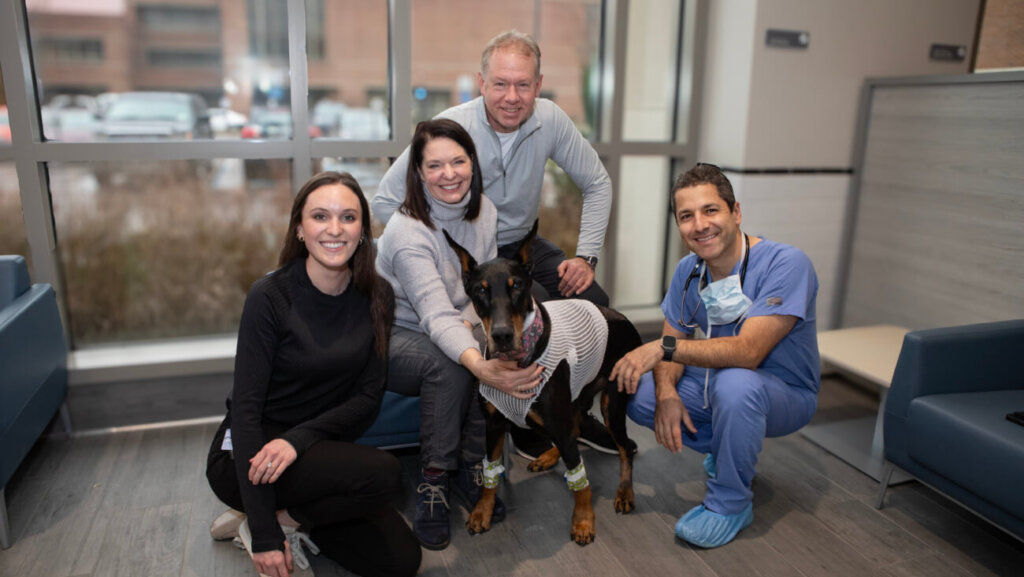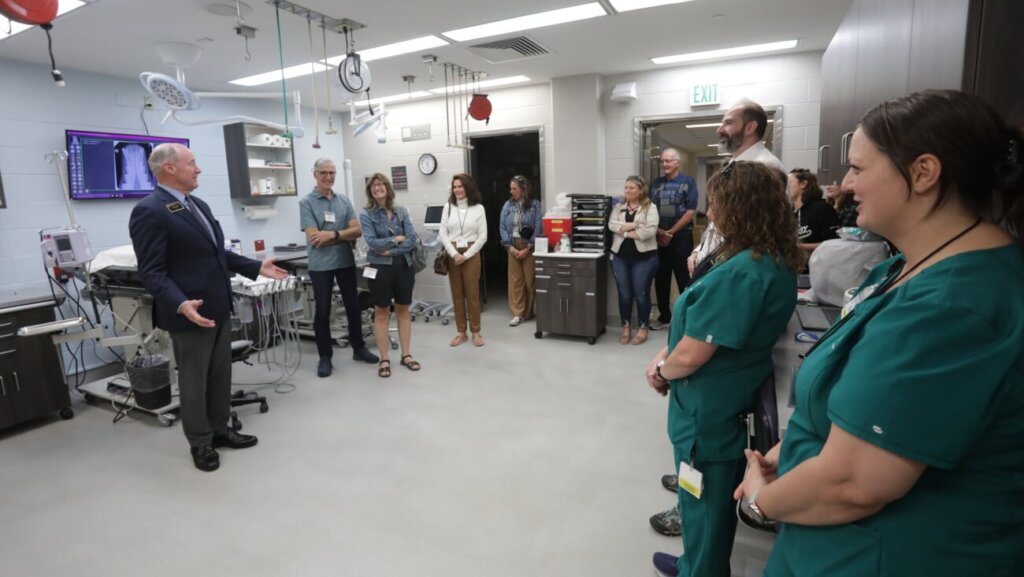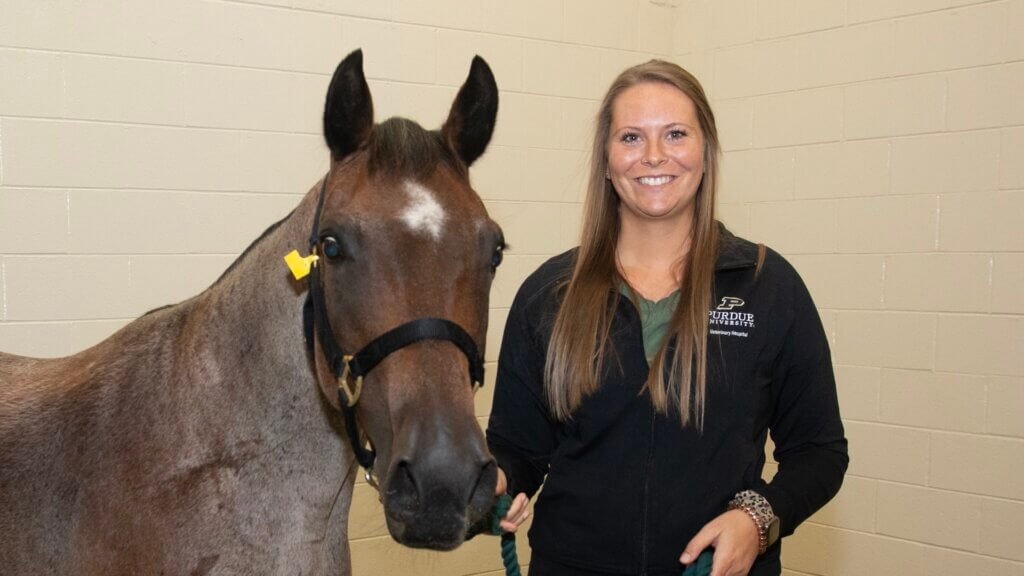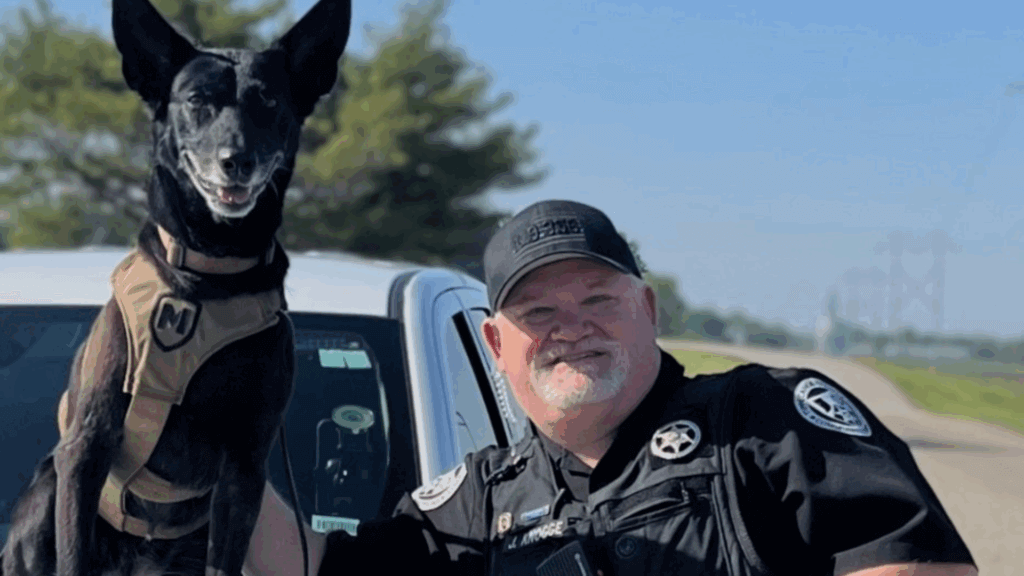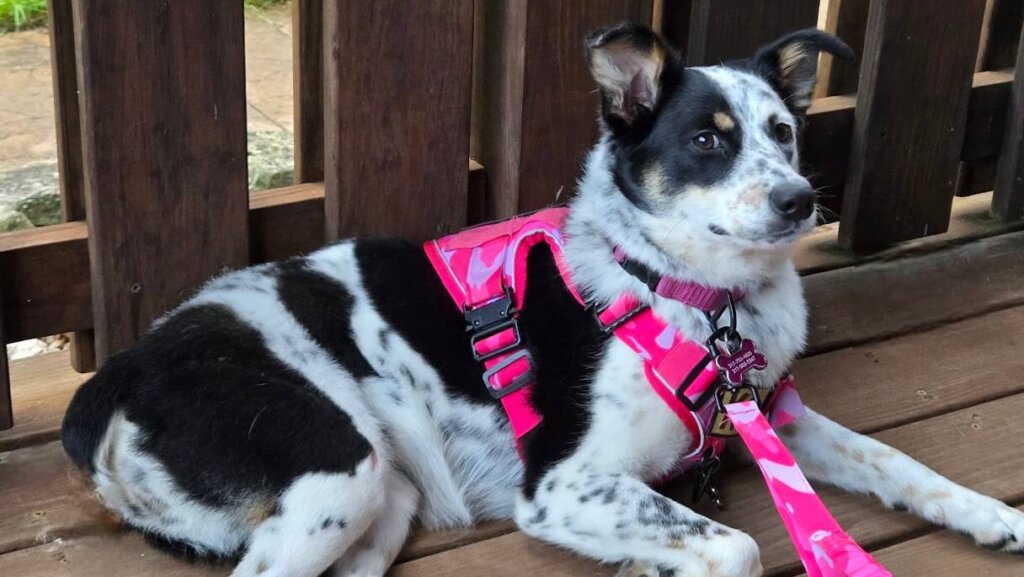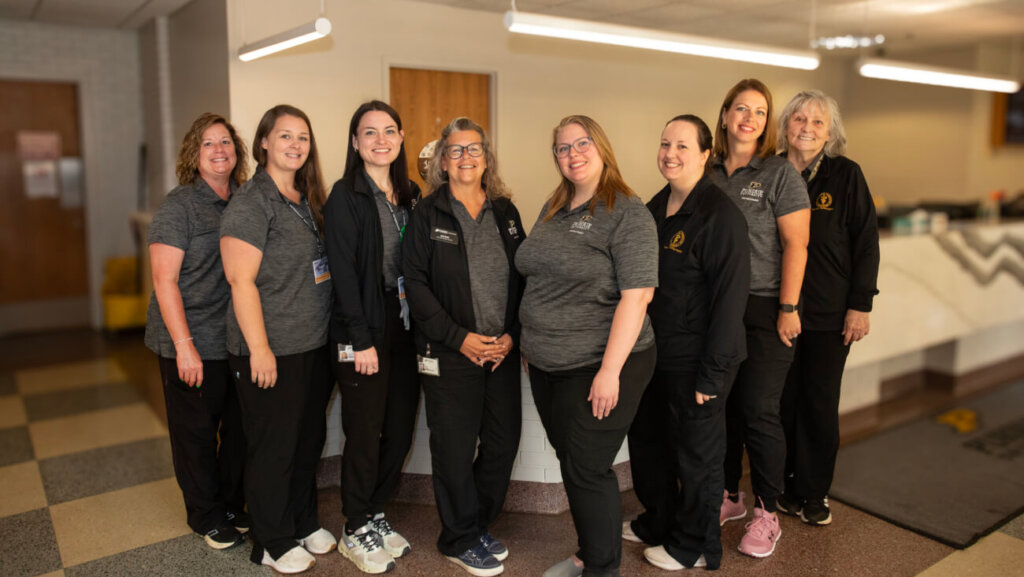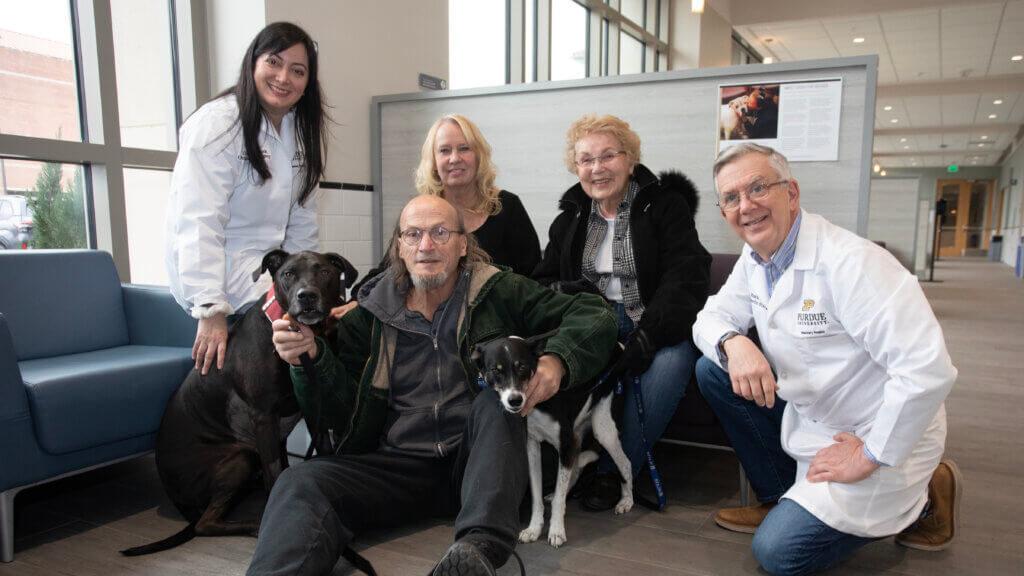Hospitals
An Alumna’s Giant Leap of Faith
January 22, 2026
Argo the Doberman was in trouble. Diagnosed with ventricular arrhythmia, an abnormal heart rhythm, he could collapse and die at any moment. Although a local specialty clinic had stabilized him, his owner, Dr. Laura Strong (PU DVM ’87), knew that traditional medication wouldn’t be enough. In her search to give Argo a chance to live a longer life, Dr. Strong returned to her alma mater, the Purdue University College of Veterinary Medicine, which is pioneering a cardiac procedure for dogs.
Reception Celebrates Completion of Named Dental Suite in Lynn Hall
January 22, 2026
Amidst growing recognition of the importance of veterinary dentistry as part of small animal primary care, the College of Veterinary Medicine hosted a reception this fall to showcase a new, named dental suite. Held in conjunction with the Purdue Veterinary Conference, the reception on September 19 gave attendees a chance to see the new clinical space that was funded by a generous donation from an alumna, Dr. Janet Houghton.
“Paws Up” – brought to you by the PVM Wellness Committee
September 26, 2025
Today we are honoring Allison Gossett, who is a large animal veterinary assistant in the Purdue University Veterinary Hospital.
Luna’s Story
September 12, 2025
Luna, a K-9 officer with Tippecanoe County Community Corrections, suddenly faced a career-threatening injury earlier this year when a hidden bone condition caused her elbow to shatter. Thanks to the expert surgical and rehabilitation care she received at the Purdue University Veterinary Hospital, Luna has made a full recovery and is back on duty, helping keep her community safe.
Purdue Alumnus and Boarded Oncology Specialist Named as New Interim Associate Dean for Hospital Operations
September 12, 2025
Dr. Christopher Fulkerson, clinical associate professor of veterinary medical oncology, has been named as the Purdue University College of Veterinary Medicine’s new interim associate dean for hospital operations. The appointment, effective immediately, was announced Monday, September 8 by the dean of the college, Dr. Bret D. Marsh.
Student Landscape Project Benefits Animals at Purdue Veterinary Hospital
August 29, 2025
A student-led landscape redesign project has taken root at Purdue University, in the form of outdoor upgrades at the Purdue University Veterinary Hospital. Originally developed by Mary Schultz, a graduating senior in the College of Agriculture’s Horticulture and Landscape Architecture program, the project reimagined outdoor spaces used for animal recovery, training, and enrichment. This summer, the hospital implemented one of the recommendations, which involved replacing natural turf in an outdoor dog run with a new synthetic material.
Rescue and Recovery: Purdue Veterinary Hospital Helps Young Herd Dog Find Her Place on the Farm
August 22, 2025
From rescue to recovery, Lani’s journey shows the power of expert, compassionate care. Thanks to the Purdue University Veterinary Hospital, this once-injured pup is now thriving as the newest member of the Richardson family farm.
“Paws Up” – Brought to you by the PVM Wellness Committee
August 15, 2025
This week, we are celebrating the Purdue University Small Animal Hospital Reception team as a truly stellar group of helpers!
Lucy’s Story
July 25, 2025
When an eight-year-old shepherd-mix dog named Lucy was injured after tragically getting struck by a car, co-parents Matt and Gretchen Walker were told that she would likely never walk again. That was over three years ago, in May of 2021. The Walkers, of Brookston, Indiana, had raised Lucy since she was a puppy, and knew that her life was nothing short of worth fighting for. “If she was willing to live, I was willing to do whatever it took,” Matt said as he recounted the story recently.
Werling Center Dedication Ceremony Celebrates a Name with a Tale
July 25, 2025
Like the beginning of a beloved children’s story, the tale of the inception of a new Purdue University College of Veterinary Medicine center devoted to comparative cancer research and treatment starts with a scene involving an adorable dog named Brandi. That scene was shared recently via a video played during a special ceremony attended by college supporters, alumni, faculty, staff, students, and relatives and friends of the family for whom the center is named. The event was the official dedication of the Evan and Sue Ann Werling Comparative Oncology Research Center May 23, 2025, which was held outside Lynn Hall near the entrance that leads to the new center’s reception area.

